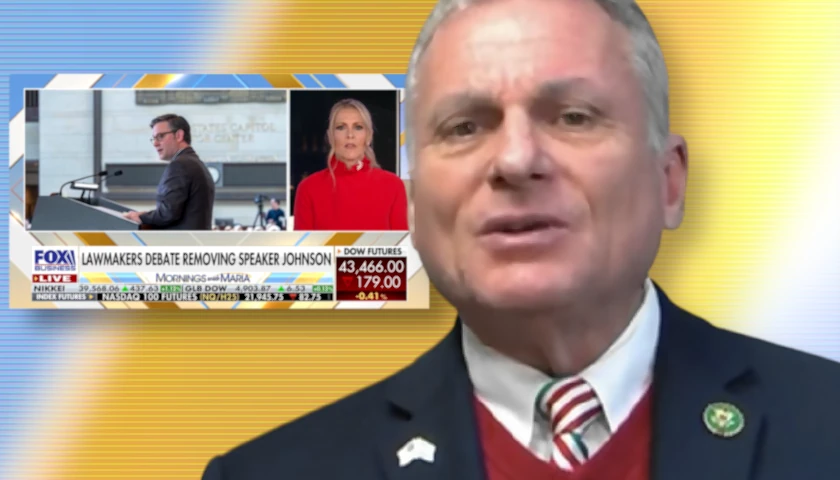Arizona State Senate Republicans introduced two bills that target Arizona’s grocery and rental taxes to give local families a financial break.
Kim Quintero, the spokeswoman for the State Senate Republican Caucus, told The Arizona Sun Times that it would be unwise for Governor Katie Hobbs (D) to veto bills like these should they pass the legislature.
“It would not be wise of the Governor to veto the food tax bill, as this will provide immediate inflation relief to those living paycheck to paycheck, and it’s something that resonates with a large portion of her voter base,” Quintero said via email.
Senate Bill (SB) 1063, sponsored by State Senator Sonny Borrelli (R-Lake Havasu), would prohibit municipalities from levying a tax on the sale of food for “home consumption.” Moreover, SB 1184, sponsored by State Representatives Steve Kaiser (R-Phoenix), would eliminate the tax tenants pay when making rent payments on their homes.
State Senate President Warren Petersen (R-Gilbert), a co-sponsor of both bills, announced their introduction Monday, emphasizing that they are meant to give Arizonans a bit more wiggle room when paying their bills amid inflation.
FOR IMMEDIATE RELEASE: Tax Cuts on Food and Rent Will Provide Struggling Arizona Families with Inflation Relief @votewarren @SineKerr @SonnyBorrelli @TJShopeforAZ pic.twitter.com/ABz1Ehjg4u
— AZSenateRepublicans (@AZSenateGOP) January 23, 2023
According to Warren, these taxes accumulated $338 million for the state last year. Across the state, 70 cities and towns change a residential rental tax on tenants, charging between one and four percent each month on a lease. This tax can cost the average family between $20 and $200 monthly.
Meanwhile, 65 municipalities charge the grocery tax. The U.S. Department of Agriculture shared that as of November 2022, the average four-person household can spend over $200 a week on groceries while living on a budget. If the tax cut were to go into law, Warren stated that similar families would save around $500 annually.
Moreover, while cities and towns accumulated a large chunk of money from these taxes last year, Warren argued that implementing the cuts would not cripple them or essential services in the state.
“Municipalities will not lose out on these revenues because the taxpayer will be spending what they get back, which in turn will be taxed via income and sales tax,” Warren said. “Furthermore, with government already receiving record revenues, we are able to increase state-shared funding in order to support our cities and towns, despite Democrats pushing a sensationalized narrative that we will be ‘defunding the police.’ We will in fact do the exact opposite, while providing relief to taxpayers in the midst of a recession. Republican policies work for all Arizonans.”
As reported by The Sun Times, Warren had spoken about the Senate pushing for these tax cuts before the 2023 Legislative Session started, and the plan is now officially underway.
Furthermore, it is not just the Senate pushing for some tax cuts. State Representative Leo Biassuci (R-Lake Havasu) introduced House Bill (HB) 2061 in January, which reads the same as SB 1063 to cut the grocery tax. As long as no amendments are tacked on to either bill, HB 2061 and SB 1063 will not need to travel from the Senate to House or vice versa, expediting them to the governor’s office to receive approval or a veto.
However, AZ Free News reported that not every Arizona city is on board with the proposed cuts, including Phoenix and Tucson, which already do not have a grocery tax. State Representative Travis Grantham (R-Scottsdale) defended the bill, saying that this is a bill to help everyday Arizonans, not the lobbyists who oppose it.
– – –
Neil Jones is a reporter for The Arizona Sun Times and The Star News Network. Follow Neil on Twitter. Email tips to [email protected].
Photo “Sonny Borrelli” by Sonny Borrelli. Photo “Steve Kaiser” by Steve Kaiser. Photo “Warren Petersen” by The Arizona State Senate Republican Caucus. Background Photo “Grocery Store” by Pixabay.








